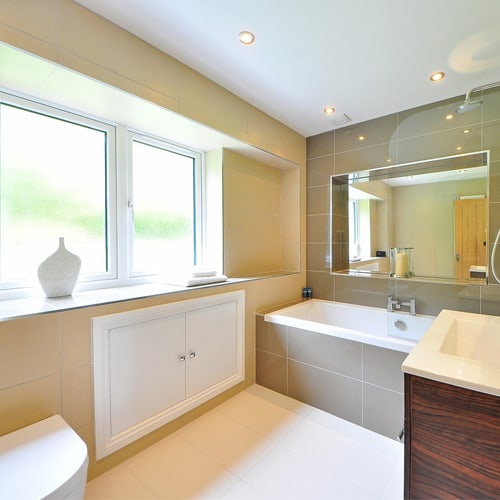Waterproofing is a mandatory process while constructing a house, a building, a structure and whatnot. But, what really is waterproofing and what are the different types? In this article, we will be sharing more on that so you can have a better understanding the types of waterproofing and what are the different methods by the end of this article.
Waterproofing is the process of making a structure waterproof, or water resistant so that it will not be affected or damaged by water or resisting the ingress of water under certain conditions. Regardless of the product used in the process, the benefits of waterproofing are more or less the same – to protect the foundation or walls from vapor or moist transmission and preventing efflorescence in the concrete. It also prevents the growth of mold and stops any water from coming in through cracks.
While building a structure, the types of waterproofing is a fundamental aspect of creating a building “envelope”, which is a controlled environment. The materials and foundations used in the process of constructing the roof has to be water resistant and sometimes waterproof in order to prevent water penetration through the surfaces. There are many different types of waterproofing membrane systems out there, such as bituminous waterproofing, polyvinyl chloride waterproofing, liquid applied waterproofing membrane, and more. At SWC Construction, our team focuses mainly on high PU (polyurethane) injection grouting
Bituminous Waterproofing
Bitumen (asphalt or coal tar pitch) is a mixed substance made up of organic liquids that are very sticky, viscous, and waterproof and is widely used for the protection of residential and commercial buildings. However, there are negative aspects that come with bituminous waterproofing. Bitumen is mostly produced from crude oil and is not considered as a sustainable building material as extreme heat and UV radiation can drastically decrease its lifespan. Thus, countries that experiences hot climate are not encouraged to use this method. Also, bitumen is combustible.
Polyvinyl Chloride Waterproofing
As suggested by its name, polyvinyl chloride waterproof is made up of polyvinyl chloride as its main raw material, which includes types as non-composite, fibrous single sided composite and internal fabric reinforced. Polyvinyl chloride waterproofing can usually last property owners up to approximately 20 years. Due to its structure, polyvinyl chloride is very strong and it is also a flexible material, which is highly resistant to precipitation, UV radiation and it has the capability to withstand heavy surface and tensile loads.
Liquid Applied Waterproofing Membrane
Liquid applied waterproofing membrane (LAM), is a high quality moisture curing elastomeric waterproofing and sealant that is designed to fill, seal and level grout lines, voids, seams and surface damage on construction materials prior to application of liquid waterproofing. It bonds to green concrete and it sets pretty quickly – up to two coats in one day and may be used in confined space
High PU (polyurethane) Injection Grouting
High PU injection grouting is what we mainly apply here at SWC Construction. This method is an injection of liquid grouting material into the structure under pressure. During the grouting process, fissures (an opening or line of breakage made by cracking or splitting in structures) and pores are filled with the grouting material, which subsequently hardens and connects the disintegrated surfaces. PU injection grouting can help to fill the cracks fully as once the injection is administered, the foam expands to fill in the entire space of each crack. This fullness gives full coverage and protection from any water seepage. Another advantage of PU injection grouting is that the atmosphere’s moisture content does not matter. The foam can be injected into wet areas, which means you do not have to wait till the leakage area is completely dry before taking action against further water damage. Not to mention PU injection grouting remains flexible too.
If you are currently experiencing water seepage/ leakage at home, do not hesitate to contact our team to find out more about the various types of waterproofing that can be applied for your house!



